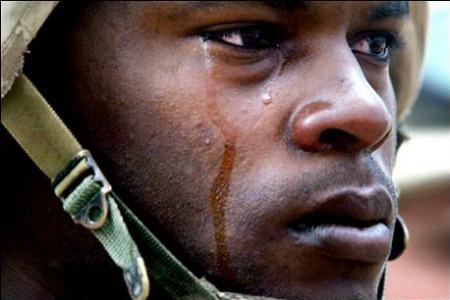
It is one of those things a family does not want to deal with – suicide. But as America’s soldiers start to come home from war, the military is experiencing it at very high levels.
Secretary of Defense Leon E. Panetta, expressing frustration that the numbers of military suicides “continue to move in a troubling and tragic direction,” told a conference in Washington Friday that the Pentagon must put the “mental fitness” of its troops on an equal plane with their physical fitness.
He said it’s perhaps the most frustrating challenge he has faced since becoming secretary of defense last year.
“There are no easy answers, but that is no damn reason for not finding the answer to the problem of suicide,” Panetta told attendees at the departments of Defense and Veterans Affairs annual conference on suicide prevention in the military.
The conference heard Thursday from a panel of family members who spoke of what they said was the military services’ failure to provide appropriate and timely mental health care to service members who had sought help.
There were 154 suicides among active-duty troops in the first 155 days of the year, according to a recent report from the Associated Press, a number that is 50 percent higher than the number of U.S. forces killed in action in Afghanistan over that time period. It is the highest rate in 10 years of war.
The stories told by the family panel members run counter to the prevailing wisdom that the biggest hurdle in trying to prevent suicide in the military is the stigma associated with seeking help, noted Bonnie Carroll, president and founder of Tragedy Assistance Program for Survivors (TAPS) a military family group that organized the panel, to The Washington Post.